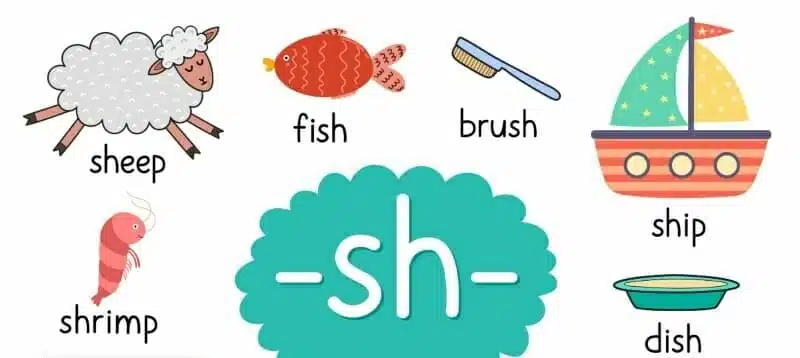TEFL 101: Must-Know TEFL Terms for Every English Teacher’s Toolkit
Join a global community of over 200,000 TEFL teachers working throughout the world! Enrol me!
If you’re not already a TEFL teacher, you probably don’t know what cognates, collocations, or clozes are. Maybe you get muddled with inflection, inversion and IELTS. Or you can’t tell the difference between minimal pairs, morphemes, or modal verbs.
And that’s okay.
As with any career, there is a fair amount of TEFL jargon related to teaching English as a Foreign Language. If you’re a TEFL teacher, in order to be on top of your game, it’s necessary for you to be aware of this jargon and to have a solid understanding of the related TEFL terms.
But don’t be overwhelmed, we’re here to help!
TEFL terminology: learning a language
Let’s look at some common terms for TEFL teachers related to learning a language.
Comprehensible input
- Language that is understandable to learners even though they do not know all of the individual components.
Comprehensible input is the optimal language input for language learning, according to Stephen Krashen. It’s typically one level above the production level of a learner, also known as i + 1. Learners won’t be able to produce this language themselves but they’ll be able to understand it.
Consequently, learners should be given language in class that they struggle with slightly and that they need to work at to understand. They shouldn’t be given language at their level, if that makes sense. They need to be challenged to learn.
Comprehensible input strategies include guessing meaning from context. This encourages learning through the process of acquisition, rather than conscious learning.
Immersion
- A method of teaching and learning which simulates the process by which a person learns their first language.
If you’re familiar with immersion in terms of swimming, then you have the right idea when it comes to English immersion.
Immersion involves teaching a learner using only the target language.
In other words, EFL learners will learn English and other subjects through the use of English. The student is “swimming” in English, so to speak. The learners learn the target language without resorting to translation.
Read more: Using Translation In The EFL Classroom
Many people believe this method is basically throwing students in the deep end and that they will struggle. But research has shown this method to be extremely effective. It’s now the method used in the majority of TEFL classrooms around the world.
This method solves the problem of the English teacher not being able to speak the students’ first language, which is often the case in a TEFL situation.
Read more: How Can I Teach English Abroad Without Knowing The Local Language

Acquisition
- The unconscious process of learning a language.
Acquisition of language is in contrast to learning a language.
Acquisition is an unconscious process. Think about how you learnt your first language – that’s acquisition. It happens to you almost without any effort on your part.
Learning a language is a conscious formal process, involving learning vocabulary and grammar rules. If you have ever learnt a foreign language, you’ll probably be all too familiar with those grammar exercises and rote learning.
Acquisition generally results in a person learning to be fluent in a language. Formal learning only sometimes guarantees this. So acquisition is the preferred method of learning a language.
Teachers should mimic this acquisition process in the classroom.
Interlanguage
- The linguistic system that underlies the language our learners produce.
In other words, your learners have their first language, and English is the target language. The English they are capable of producing is their interlanguage.
Understanding interlanguage can be useful in many ways.
Studying a student’s interlanguage will emphasise what a learner is producing rather than concentrating on error analysis, which is often what we do.
The interesting thing about interlanguage is that it is remarkably similar for learners regardless of their mother tongues.
In other words, a Spanish-speaker and a Turkish-speaker may produce very similar language if they have similar levels of English. For example, they may follow the same developmental patterns when learning specific language structures.
At the same time, when it comes to error analysis, we see that learners who have the same or similar first languages are likely to produce the same errors. This is helpful when it comes to planning our lessons, as we are able to anticipate errors and plan appropriate lesson activities to counter those errors.
Read more: Encouraging Mistakes In The TEFL Classroom
Interference
- Problems that affect the learning of a new language, specifically caused by the learner’s first language.
Interference comes about as a result of the learner transferring aspects of their first language onto the second language. Even though this mostly happens when the learner is at a low level of the second language, it can actually happen at any stage in learning. It happens when the learner makes assumptions about the language they do not know.
This makes sense when the first language and the second language are very different.
But it’s also a problem when the two languages are very similar, as learners may assume that words that look or sound similar have the same meaning or can be used in the same way when in fact they can’t.
False friends are such an example.
False friends are words that look and sound similar in two languages but have a completely different meaning. This is in contrast to cognates, which are words in different languages that come from the same family and so are related.
If you consider milk (English) and melk (Dutch) you can understand that they are cognates because they look and sound the same and they have the same meaning.
However, embarrassed (English) and embarasado (Spanish) are false friends. Even though they look and sound similar, embarasado actually means pregnant!
Read more: An A-Z of the English Language

Fossilisation
- When a language error becomes a habit in the second language.
Making mistakes in a foreign language is a natural part of the learning process. It’s to be expected and even encouraged. Language learners make mistakes all the time, but sometimes they will be corrected and other times they won’t.
If the mistakes they are making do not impede communication in any way, there is a chance they will go unnoticed, especially if these productions are not taking place in the EFL classroom. If this happens again and again, over time the learner will adopt this error into their language production without realising it is a mistake.
Fossilised errors can be extremely difficult to correct because they have been incorporated into a learner’s interlanguage. Bringing a learner’s attention to the error and their production can help, as can doing activities focussed on that particular error.
But now let’s look at a particular teaching and learning situation.
TEFL terminology: Pronunciation
Teaching pronunciation seems to be one of the more challenging aspects of teaching English as a foreign language. Teaching pronunciation can get quite technical.
So here are a few pronunciation terms you should know about before stepping into your TEFL classroom and trying to teach pronunciation.
Assimilation
- When a sound at the end of a word changes because of the sound after it.
For example,
I’ve never been to Green Park = I’ve never been to Gree/m/Park.
Other phonetic terms related to assimilation are intrusion and elision.
Intrusion
- When an extra sound is said by the speaker between two words, so that they are easier to say.
For example,
I am hungry = I (y)am hungry.
Elision
- When a sound is dropped from the beginning or end of a word, in order to make the following or previous words easier to say.
For example,
I am going round to her house = I am going roun_to her house.
Intonation
- The melody of speech, the ups-and-downs of your voice.
Your intonation expresses more than the words that are spoken; it helps understand the thoughts and feelings behind the words.
If you’ve ever heard a person speak in a monotone, you’ll realise the importance of intonation, not only to interest the listener but also to convey meaning.

Phoneme
- The smallest unit of sound in a language.
A word such as much has four letters but only three phonemes: /mɅʧ/.
If you have no idea what /mɅʧ/ is, then you need to introduce yourself to the International Phonetic Alphabet.
The International Phonetic Alphabet (IPA)
- What we can use in class to show our learners the phonemic transcription of sounds.
It’s not necessary for your learners to be able to identify or write all the phonemes in the IPA. But it’s helpful if they become familiar with the ones they will encounter the most and which will be the most problematic.
Minimal pairs
- A set of words which differ by just one sound.
For example: bat /bɶt/ and but /bɅt/. Minimal pairs are a useful tool to teach contrasting sounds to our learners.
Especially if you have learners who all speak the same first language, it can be beneficial to draw attention to these sounds in order to draw their attention to the differences. This will help both their listening and their pronunciation.

Schwa
- The most common vowel sound in English.
It is the vowel sound in a non-stressed syllable. For example: mother /mɅƟƏ/.
Next up, some terms related to Young Learners.
TEFL terminology: Young Learners
In many TEFL jobs you may be required to teach English as a Foreign Language to Young Learners. If you have never had any experience teaching Young Learners (and if you don’t have any kids of your own!) you may be a bit daunted by the challeng.
There is so much information available on teaching Young Learners that if you do some background reading – or even a course on Young Learners – you will soon feel more comfortable with the challenge.
To get you started, here are a few terms you may come across when preparing to teach a Young Learner classroom.
Stirrers and settlers
- Stirrers are activities which will wake your students up and get them excited and active. Settlers are activities which calm students down and prepare them to focus and concentrate.
A Young Learner classroom needs to have a variety and action. Activities need to be varied and there needs to be plenty of them. Your lessons should have both stirrers and settlers as they are both needed at different stages of the lesson for different purposes.

CLIL
- Content and Language Integrated Learning, which basically means teaching a subject through English.
Some schools adopt CLIL by utilising a bilingual approach to education, in that entire subjects – such as Science or History – are taught in English. Others prefer to introduce CLIL lessons into their English lessons.
Either way, CLIL provides a great way to incorporate a language focus into a lesson which otherwise deals with a specific subject-related topic.
Scaffolding
- The support given to students to help them achieve a task.
Instead of a teacher explaining exactly how to complete a task, scaffolding gives the learners help but lets them accomplish the task on their own.
With Young Learners, it is useful to provide a lot of scaffolding in the beginning but provide less and less scaffolding as they become more independent.
Gamification
- Making learning activities more like games to maintain interest.
Turning class activities into competitions encourages learner participation and increases motivation, especially for Young Learners.
Bear in mind, this is not the same as just playing games in the classroom (though that can also have its place).
Growth mindset
- Not freaking out over your mistakes but rather realising that you can learn from them.
It means understanding that success is not only based on talent but also on hard work and determination. A growth mindset is something we should encourage in our Young Learners.
Encouraging a growth mindset will give confidence to our Young Learners so they are not afraid to speak up even if they may make a mistake, and they won’t get too demotivated if they do badly on a test.
Does this sound like your jam? Maybe you should be thinking about doing a TEFL course! And while we’re on the topic…
TEFL terminology: Your TEFL Course
Make no mistake, the TEFL course is hardcore. There is so much information you need to know, in terms of teaching methodologies, learning theories and classroom techniques, that there will probably be times on your course when you will feel overwhelmed. If this happens to you, don’t let it stress you out – it’s completely normal and happens to most of us. But, to try and prevent that from happening, here are five terms you can get your head around before you do your TEFL course and which will give you a head start.
Monitoring
What EFL teachers should be doing while your students are doing an activity, be it a grammar or vocabulary exercise or a speaking exercise.
We monitor by walking around the classroom (surreptitiously, not getting in anyone’s way!) and listening to our students when they are talking.
We monitor for a number of reasons:
- to make sure students are doing what they are supposed to be doing;
- to allow our students to ask us questions individually, without involving the whole class;
- to listen out for general or specific errors students are making.
Eliciting
A technique we make use of to make our classes more student-centred and learner-focused.
Instead of always giving our students information on topics or language, we elicit feedback from our students. In other words, we ask questions to draw out specific information from our students.
For example:
“What do you call someone who works in a bank?”
“What tense is this? Is this in the present or the past?”
Concept checking
- Asking questions to check your students’ understanding.
It’s the next logical step from eliciting, and actually should be utilised when teaching any vocabulary. Once you have elicited or taught a word, it is necessary to ensure your students understand the word.
For example, if the target item is lion, we can ask: “What sound does a lion make?” or “Where do lions live?”.
STT
- In contrast to teacher talking time.
Teaching English as a Foreign Language is quite different from teaching other subjects in a mainstream school. In our classrooms, the students are the focus of the lessons. They are the driving force behind what happens in the classroom, while the teacher guides them along.
As a result, in the EFL classroom, student talking time should be more than teacher talking time.
Realia
- Real things used in an EFL lesson.
Realia are authentic items you can use in the classroom to help you teach language. Realia can be utilised for teaching simple vocabulary items – for example, bringing an apple, banana and pear into class when you are teaching fruit; or for teaching more complicated language – for example, using tourist brochures and maps to practise giving directions.
Don’t worry if this is all news to you, every day is an opportunity for learning!
When you have some free time, instead of automatically switching on Netflix, rather pick up a TEFL book or read a TEFL blog to keep you informed and educated on all things TEFL.
Accreditation & Quality Assurance
The TEFL Academy was the world’s first TEFL course provider to receive official recognition from government regulated awarding bodies in both the USA and UK. This means when you graduate you’ll hold a globally recognised Level 3 (120hr) Certificate or Level 5 (168hr) Diploma, meaning you can find work anywhere and apply for jobs immediately.
 United States
US
United States
US













